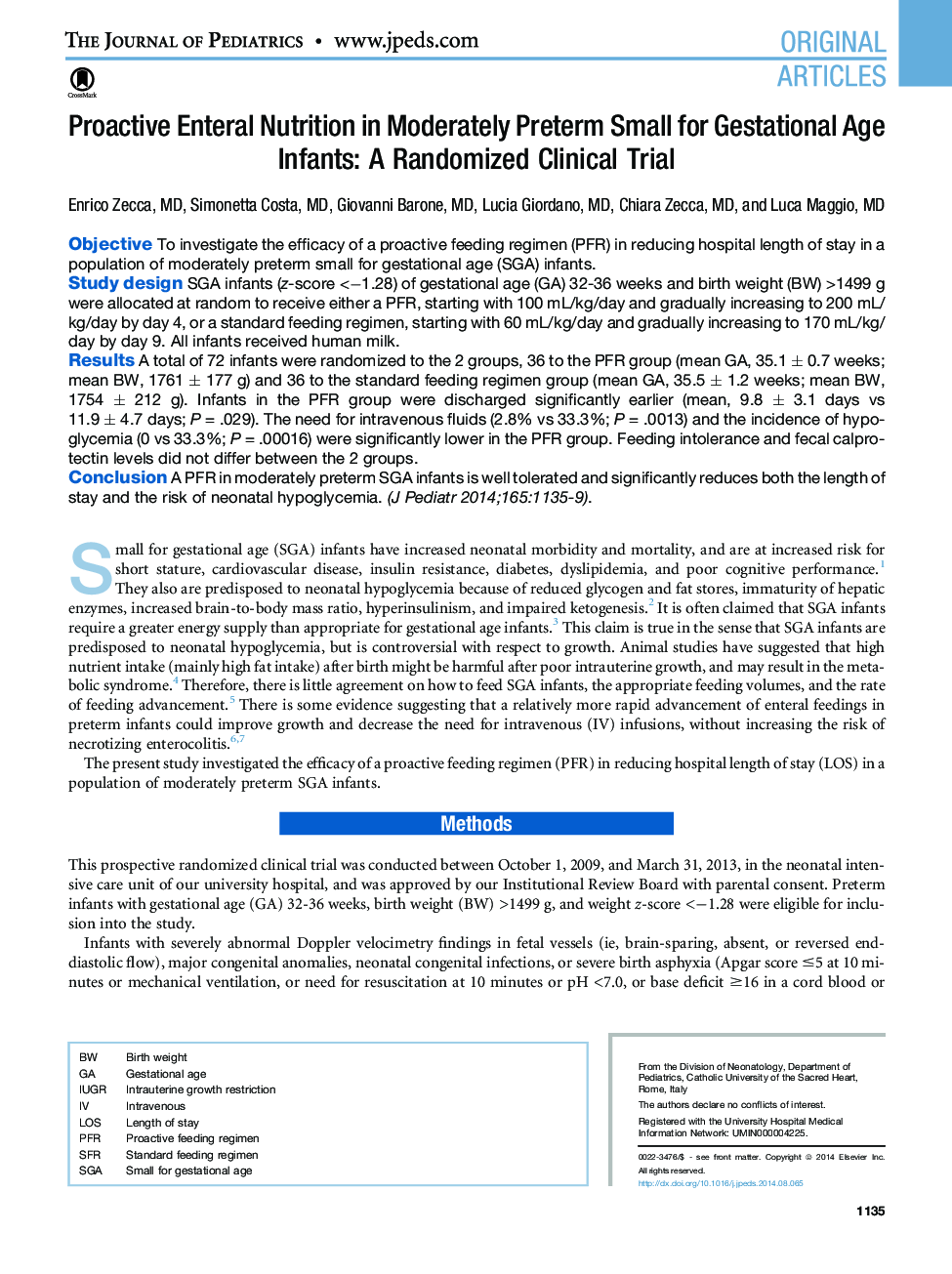| Article ID | Journal | Published Year | Pages | File Type |
|---|---|---|---|---|
| 6220131 | The Journal of Pediatrics | 2014 | 6 Pages |
ObjectiveTo investigate the efficacy of a proactive feeding regimen (PFR) in reducing hospital length of stay in a population of moderately preterm small for gestational age (SGA) infants.Study designSGA infants (z-score <â1.28) of gestational age (GA) 32-36 weeks and birth weight (BW) >1499 g were allocated at random to receive either a PFR, starting with 100 mL/kg/day and gradually increasing to 200 mL/kg/day by day 4, or a standard feeding regimen, starting with 60 mL/kg/day and gradually increasing to 170 mL/kg/day by day 9. All infants received human milk.ResultsA total of 72 infants were randomized to the 2 groups, 36 to the PFR group (mean GA, 35.1 ± 0.7 weeks; mean BW, 1761 ± 177 g) and 36 to the standard feeding regimen group (mean GA, 35.5 ± 1.2 weeks; mean BW, 1754 ± 212 g). Infants in the PFR group were discharged significantly earlier (mean, 9.8 ± 3.1 days vs 11.9 ± 4.7 days; P = .029). The need for intravenous fluids (2.8% vs 33.3%; P = .0013) and the incidence of hypoglycemia (0 vs 33.3%; P = .00016) were significantly lower in the PFR group. Feeding intolerance and fecal calprotectin levels did not differ between the 2 groups.ConclusionA PFR in moderately preterm SGA infants is well tolerated and significantly reduces both the length of stay and the risk of neonatal hypoglycemia.
